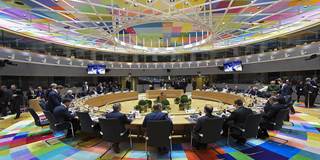Keeping the Balkan Ghosts at Bay
European leaders, having suddenly awoken to new realities in the Balkans, are calling for increased engagement in the region to maintain stability and push back against Russian influence. But it is now clear that the only way forward for the EU is to accelerate the remaining Balkan countries' integration into the bloc.
VISBY, SWEDEN – European Union leaders have suddenly awoken to new realities in the Balkans. At a recent summit, they emphasized the need for increased EU engagement to maintain stability – and to push back against Russian influence – in the region.



VISBY, SWEDEN – European Union leaders have suddenly awoken to new realities in the Balkans. At a recent summit, they emphasized the need for increased EU engagement to maintain stability – and to push back against Russian influence – in the region.